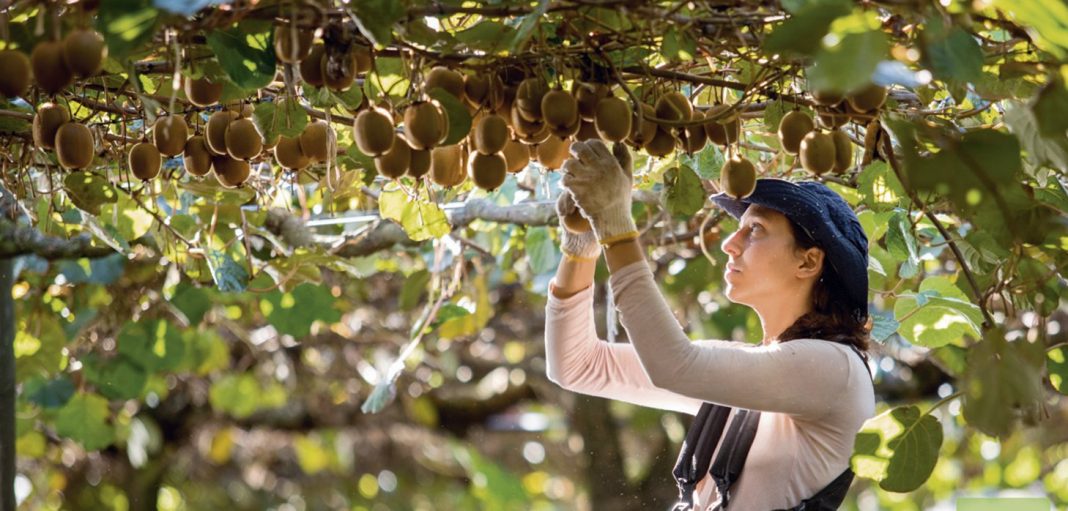Bay of Plenty kiwifruit employers are awaiting the “how many and where” from the government’s recent announcement about increasing the number of Recognised Seasonal Employer (RSE) workers coming to New Zealand.
In late September immigration minister Iain Lees-Galloway announced an increase of 3150 additional workers for the scheme, with 1550 due to have visas issued for this season and 1600 for next.
The announcement takes this year’s total workers to 14,400 for the coming harvest season.
Of that, Bay of Plenty received 1750 workers last year, while the numbers allocated in the latest increase remain to be determined. But based on past allocations the 1550 may translate to another 180 RSE staff available this year, and a similar number next year.

Last season the kiwifruit industry estimated it was almost 2000 workers short, with critical shortages prompting significant increases in automation within pack-house facilities, enabling more staff to be allocated to picking jobs.
Nikki Johnson, New Zealand Kiwifruit Growers Incorporated (NZKGI) chief executive said the sector has been addressing two key concerns raised by the minister when allocating RSE workers.
These were around providing accommodation for staff that did not impact on local housing stock, and ensuring as many New Zealanders as possible had the chance to participate in the sector.
“NZKGI is planning for the second year of a campaign to attract Kiwis to work in the kiwifruit industry,” she said.
“Although New Zealanders are the kiwifruit industry’s first priority when it comes to picking and packing kiwifruit, the low unemployment rate makes it difficult to fill all the available positions.”
Accommodation squeeze
Increasing seasonal accommodation has been a focus of the sector for some time and the last survey indicated 2282 beds were planned from 2018-19.
“This is a significant investment by the kiwifruit industry and requires partnership with local council to navigate the planning processes,” said Johnson.
The Western Bay of Plenty District Council is presently reviewing its district plan, looking at changes to enable more seasonal worker accommodation to be built on orchards, and in post-harvest areas. However, outcomes from this have meant delays in accommodation construction.
“Much of the current and planned worker accommodation is located on orchard or pack-house sites that wouldn’t otherwise be used for New Zealanders requiring rental accommodation, so does not impact on residential housing supply.”
Seeka chief executive Michael Franks said he was confident the kiwifruit sector alone could absorb the additional 3000 RSE workers promised nationally, and that it would not compromise employment opportunities for locals.
“Obviously we like to hire locals first, but RSE workers complement local workers.”
He said this winter has proved particularly difficult for orchard operators struggling to get seasonal pruning completed on time and safely, with depleted numbers of staff.
“We do have to be grateful for whatever we get through the RSE scheme,” said Franks. “But I suspect when the allocation comes out that we will be tight.”
Obviously we like to hire locals first, but RSE workers complement local workers.”
– Michael Franks
He said the industry was typically tight for staff on the shoulders of the picking season. In return for granting more RSE visas the government has asked the horticulture industry to increase worker accommodation.
The Pipfruit sector has increased accommodation in areas including Hawke’s Bay by 1700 for the coming season.
The kiwifruit sector has witnessed some expansion, with plans to have 3500 new beds in place by 2023.
To ensure accommodation meets health and safety standards is not cheap, with estimates every “bed” costs $25,000 to construct.
Franks said Seeka was considering a new accommodation facility venture in coming months, possibly in the Katikati area.
Packhouse operators DMS Progrowers has also recently expanded its RSE worker accommodation at its Te Puna pack-house site from 50 to 100 beds.


















